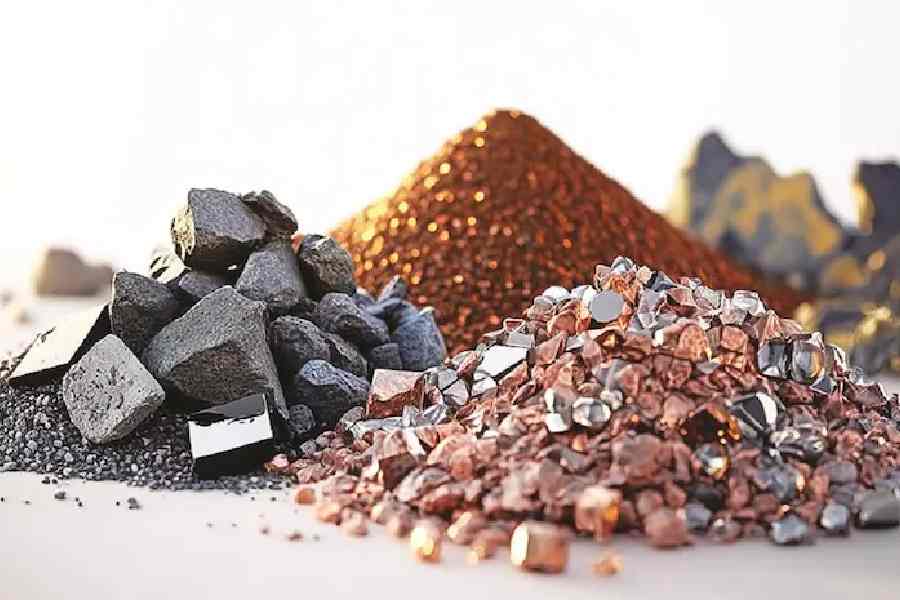Bihar will auction iron ore and limestone blocks worth over ₹5,000 crore being starved of natural resources since the separation of Jharkhand in 2000. These were surveyed, explored and assessed in recent years.
A cabinet meeting chaired by chief minister Nitish Kumar on Friday approved their "value estimated resource" (estimated price of the resource in the mining block at the current market rate) recommended by the tender approval committee of the mines and geology department.
“The cabinet has approved the value estimated resource recommended by the tender approval committee under the mines and geology department for two blocks of iron ore (magnetite) in Jamui district and a block of limestone in Rohtas district. These blocks will be e-auctioned,” cabinet department additional chief secretary S. Siddharth said.
The magnetite blocks in Jamui are located in the Majos and Bhanta areas, while the limestone block in Rohtas is in the Bhora–Kathra area.
According to the mines and geology department officials, the Majos magnetite block in Jamui has 48.40 million tonnes of resources with a value estimated resource of ₹3,818 crore. The Bhanta magnetite block has around 6.49 million tonnes of the mineral valued at around ₹512 crore, while the Bhora– Kathra limestone block in Rohtas has around 33.25 million tonnes of the resource valued at ₹ 1,761 crore.
Talking to The Telegraph, the mines and geology department's additional chief secretary Mihir Kumar Singh said that the state government would complete the auction process of the magnetite and lime blocks in the coming days.
Mihir was on his way to Hyderabad to participate in the auction announcement of two blocks of glauconite and a block of nickel, chromium and platinum group of elements (PGE) in Bihar by the central government on Saturday.
Glauconite is chiefly used in fertiliser as it is a source of potassium. Its blocks are at Chutia-Nauhatta and Pipradih-Bhurwa in Rohtas district in the state, while the nickel, chromium and PGE blocks are spread across Gaya and Aurangabad districts.
“The central government will announce the winners of the auction of these blocks. It is going to be a historic occasion. Nickel is a critical mineral and our country is 100 per cent dependent on imports for it. It spends around 680 million dollars annually for the mineral, which is invaluable due to its use in nickel-cadmium batteries used in electric vehicles,” Mihir told this newspaper.
The cabinet also gave its nod to Bihar Film Promotion Policy 2024. It includes developing a strong framework and infrastructure to attract the shooting and making of movies and soap operas in the state, providing grants and financial assistance for them, and residential and transport facilities for filmmaking, among other things.
The policy has provisions for organising film festivals and giving film awards. It also mandates the screening of movies made in Bihar’s regional languages in all types of theatres or cinema halls in the state.











